Dr. Mardy's Quotes of the Week ("Variations on the Golden Rule")
August 11—17, 2024 | THIS WEEK'S THEME: “Variations on the Golden Rule"
Opening Line of the Week
Those who think an opening paragraph must be a work of art or a literary tour de force should recall the words of writer and editor John Fox, who wrote in a 2017 blog post:
“Remember that the one and only true rule for the first paragraph is that it has to make the reader want to read the rest of the book.”
Gensler achieves that goal here as he effectively introduces the topic to readers and, I think, successfully convinces them to read on.
For nearly 2,000 memorable opening lines from every genre of world literature, go to www.GreatOpeningLines.com.
This Week’s Puzzler
On August 19, 1994, this American scientist and peace activist died at age 93 at his ranch in Big Sur, California. He was one of only two people in history (the other was Marie Curie) to receive Nobel Prize awards in two separate categories: Chemistry in 1954 and Peace in 1962. Speaking to reporters in 1963, he said:
Born in Portland, Oregon in 1901, he was nine when his father died, and both he and his sister went on to be raised by a single mother. He was an extremely bright child who got turned on to the world of science after a neighborhood friend shared his new chemistry set with him. After breezing through high school and college, he got his Ph.D. in physical chemistry and mathematical physics from the California Institute of Technology in 1925.
In the first half of his life, he shunned politics, but things changed dramatically after WWII, when he joined forces with Albert Einstein, Bertrand Russell, and other Nobel laureates to warn the world about the dangers posed by the proliferation of nuclear weapons. In 1963, when John F. Kennedy and Nikita Khrushchev signed the historic Partial Test Ban Treaty, his efforts were cited as essential to the outcome—and in a neat coincidence, on the very day the treaty went into effect later that year, the Nobel Prize Committee awarded him their coveted Peace Prize.
In his later years, he also became something of a celebrity in popular culture for arguing that the consumption of large doses of Vitamin C would help protect against the common cold and other infectious diseases.
He also had a reputation for great wit, which he demonstrated in a 1960 congressional hearing:
Who is this person? (Answer below)
What’s Your Favorite “Tweak” of The Golden Rule?
I’ve always enjoyed creative alterations of popular sayings, and the quotation in this week’s Puzzler ingeniously plays off the ethical principle known as The Golden Rule.
For the past thirty years, I’ve been collecting sayings that piggy-back on other sayings—I call them altered aphorisms—and I’m hoping to one day share them with the world. I may do it in a book. Or possibly an internet site. But if I do come out with a book on the subject, I already have a title for the work: It’s Just a Phrase I’m Going Through.
A little later, I’m going to share with you a dozen of my favorite tweaks of the Golden Rule. First, though, a brief look at the rule itself.
The Golden Rule is one of history’s oldest ethical principles. Most commonly expressed as “Do unto others as you would have others do unto you,” the sentiment has been around for longer than you might guess, with the earliest versions appearing independently in China, India, Mesopotamia (current-day Iraq), and Egypt over three thousand years ago.
The notion that we should treat others as we would like others to treat us is a positive form of the rule. The negative form is also quite popular, and it was first first expressed in the sixth century B.C. by the most famous sage in Chinese history.
Five hundred years later, in the first century B.C., a Jerusalem rabbi known as Hillel the Elder became a hugely influential figure in Jewish history. He was an old man when Jesus of Nazareth was born, and the two men never met. But Jesus was fully aware of Hillel’s reputation—and probably familiar with a popular anecdote about the Jewish scholar.
In one of Hillel’s study groups, a student challenged him to explain the meaning of the Torah while standing on one foot. The aging scholar no longer had the balance of his younger years, but, complying with the request, he began by quoting a passage from Leviticus about loving thy neighbor as thyself—and then concluded by saying:
Hillel had been dead for about twenty years when the 30-year-old Jesus of Nazareth began his ministry. About a year into his preaching, the mesmerizing young preacher delivered the most important sermon of his life—and perhaps the most famous sermon in religious history. In The Sermon on the Mount, Jesus turned many traditional Jewish ideas on their heads, as when he advised turning the other cheek and loving one’s enemies instead of taking an eye for an eye.
The sermon also included some of his most famous sayings, like “Judge not, that ye be not judged” and all of the beatitudes, including “Blessed are the meek, for they will inherit the earth.” His legendary sermon that day also contained this thought, almost certainly inspired by Hillel’s earlier observation about the essence of the Torah:
For some years now, I’ve been unsuccessfully trying to figure out how the “do unto others” ethical principle became known as The Golden Rule. So, this week I decided to ask ChatGTP. This is the answer I got:
“The earliest known use of the phrase ‘The Golden Rule’ was in 1604 by Charles Gibbon in his work The Golden Rule, where he used the term to describe the ethical principle of treating others as one would like to be treated.”
Sounds impressive, right? And so authoritatively delivered. But the problem is that the answer is a complete fabrication—and therefore totally bogus. Technically, it’s known as an AI Hallucination, and it’s something I’ve seen scores of times in my recent quotation research efforts. If you use AI, you should be aware of it as well.
My recent research efforts weren’t completely in vain, however, as they resulted in this fascinating discovery:
Was Mill the first person to use the expression the golden rule to refer to Golden Rule quotations? Who knows for sure, but until someone provides an earlier observation, it’s the one I’m going with.
Let me bring my remarks to a close by mentioning that, over the years, many have used the term golden rule to refer to subjects that have nothing to do with the theme of how we should treat others. Here’s a brief sampling:
“There are two golden rules for an orchestra: start together and finish together. The public doesn’t give a damn what goes on in between.” — Thomas Beecham
“If you want a golden rule that will fit everything, this is it: Have nothing in your houses that you do not know to be useful or believe to be beautiful.” — William Morris
“Make it a point to do something every day that you don’t want to do. This is the golden rule for acquiring the habit of doing your duty without pain.” — Mark Twain,
And, just this week, we saw one more example from the world of American politics:
As I mentioned at the beginning of this week’s post, The Golden Rule has been modified in a variety of memorable ways over the years. The quotation in this week’s Puzzler is my personal favorite, but there are many other great ones as well. You’ll find a dozen of them below:
Look into your own heart, discover what it is that gives you pain, and then refuse under any circumstance, whatsoever, to inflict that pain on anybody else. — Karen Armstrong
The Golden Rule of friendship is—listen to others as you would have them listen to you. — David W. Augsburger
Do unto those downstream as you would have those upstream do unto you. — Wendell Berry, his Golden Rule for environmentalists
Do unto others better than you can ever expect that they will do unto you. — Alice Bundy
The Golden Rule of Parenting is: Do unto your children as you wish your parents had done unto you! — Louise Hart
Give to every other human being every right that you claim for yourself. —Robert G. Ingersoll
As I would not be a slave, so I would not be a master. This expresses my idea of democracy. — Abraham Lincoln
Part of obedience to the Golden Rule is knowing how to respond once you’ve behaved in an unloving way. — Doug McIntosh
Treat your inferiors as you would be treated by your betters. — Lucius Annaeus Seneca (Seneca the Younger)
I would like to have engraved inside every wedding band, Be kind to one another. This is the Golden Rule of marriage, and the secret of making love last through the years. — Randolph Ray
The need to treat ourselves as well as we treat others. It’s women’s version of the Golden Rule. — Gloria Steinem
The basis of all animal rights should be the Golden Rule: we should treat them as we would wish them to treat us, were any other species in our dominant position. — Christine Stevens
For source information on these quotations, and more quotations on THE GOLDEN RULE, go here.
Cartoon of the Week:
The inspiration for this recent cartoon—and the very first appearance of the clever-but-cynical tweaking of The Golden Rule—was in a 1965 “The Wizard of Id” comic strip by Brant Parker & Johnny Hart. In the first panel of their strip, the Wizard says, “And let us all remember to live by the Golden Rule.” In the second, a subject asks for an explanation of the rule. And in the third and final panel, the Wizard replies, “The one who has the gold makes the rule.” If I can locate that original strip—and get permission to use it—I’ll provide it in the archived post.
Answer to This Week’s Puzzler:
Linus Pauling (1901-94)
Dr. Mardy’s Observation of the Week:
Thanks for joining me again this week. See you next Sunday morning, when the theme will be “Libraries & Librarians”
Mardy Grothe
Websites: www.drmardy.com and www.GreatOpeningLines.com
Regarding My Lifelong Love of Quotations: A Personal Note





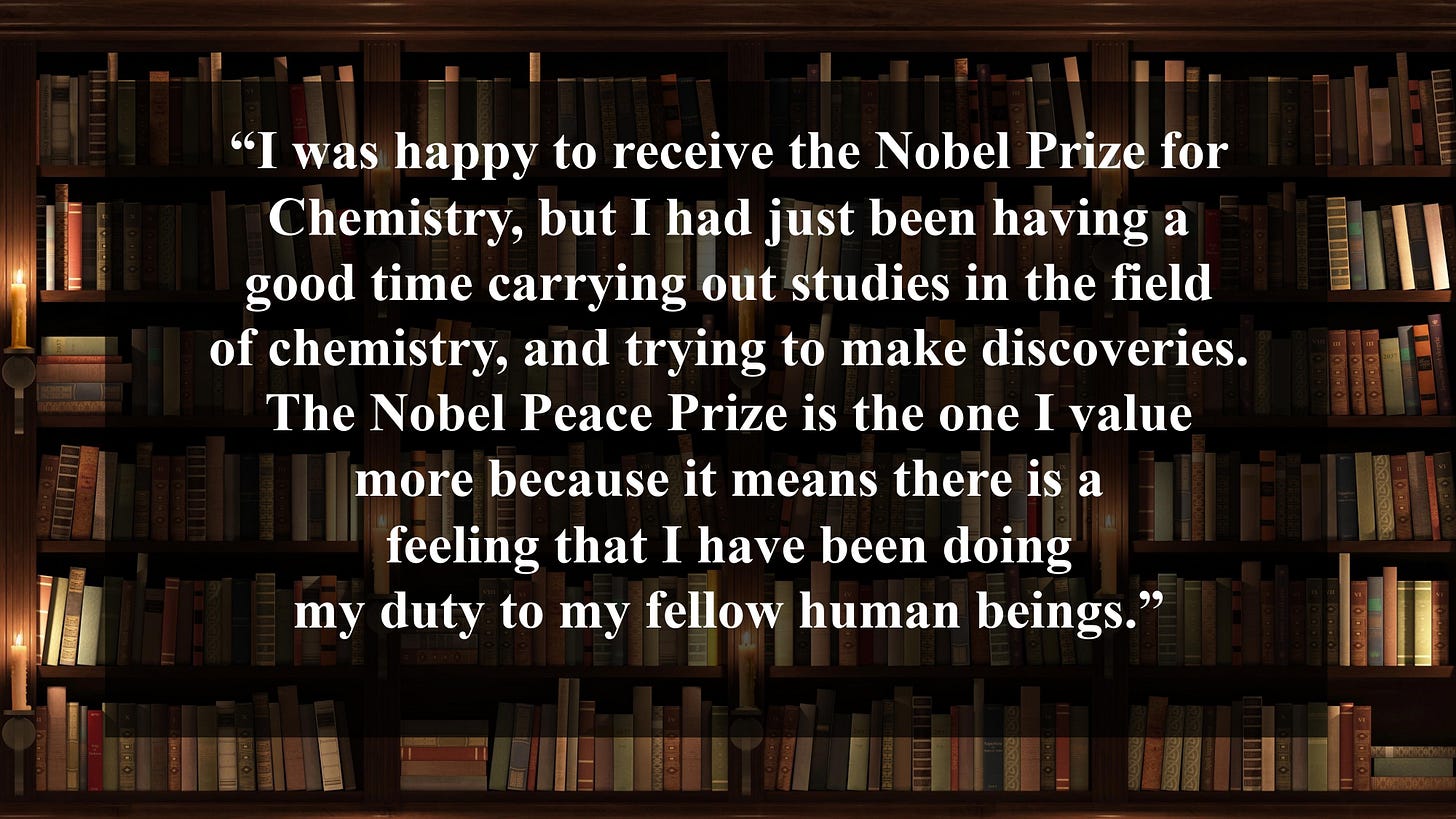
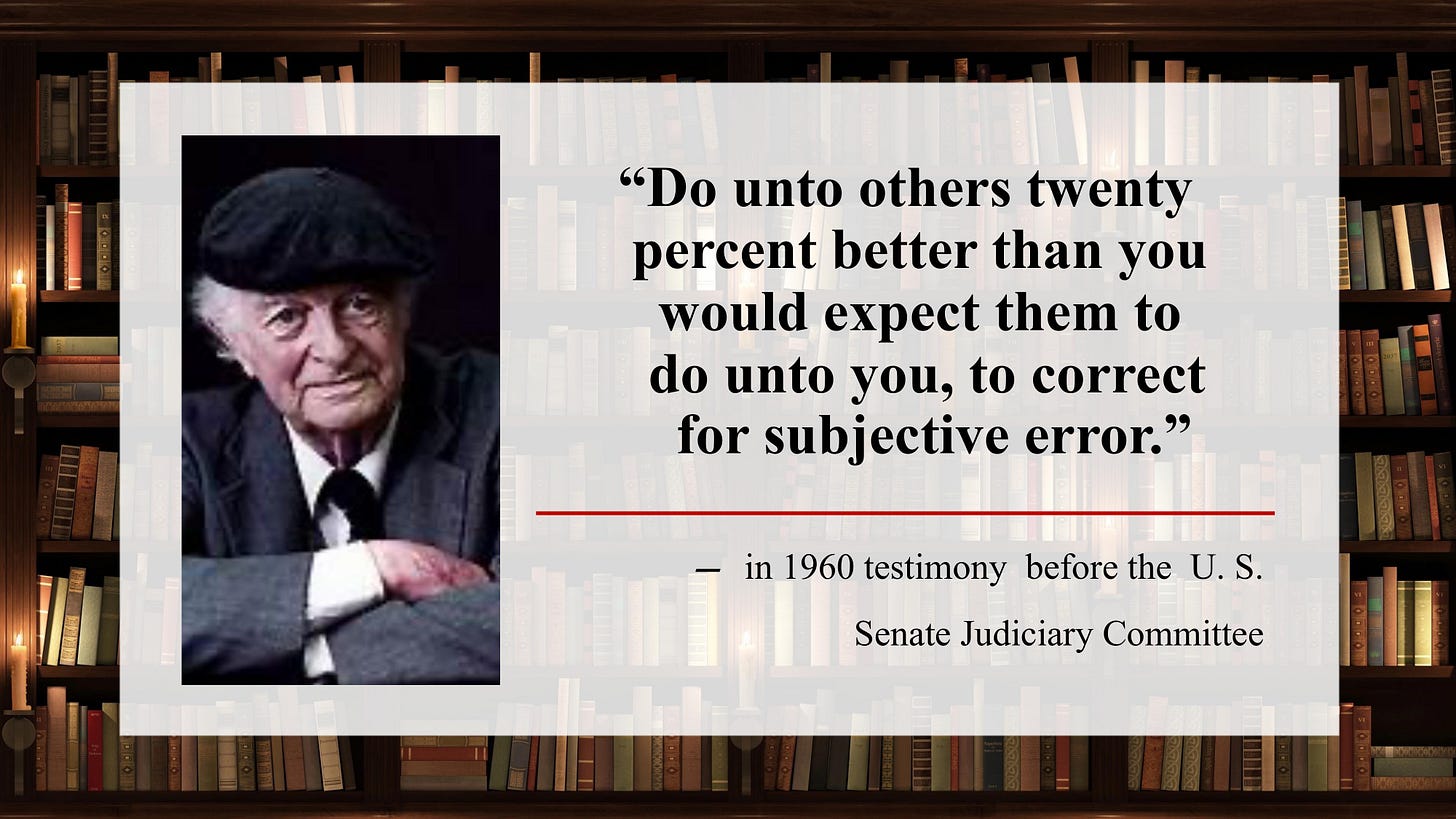



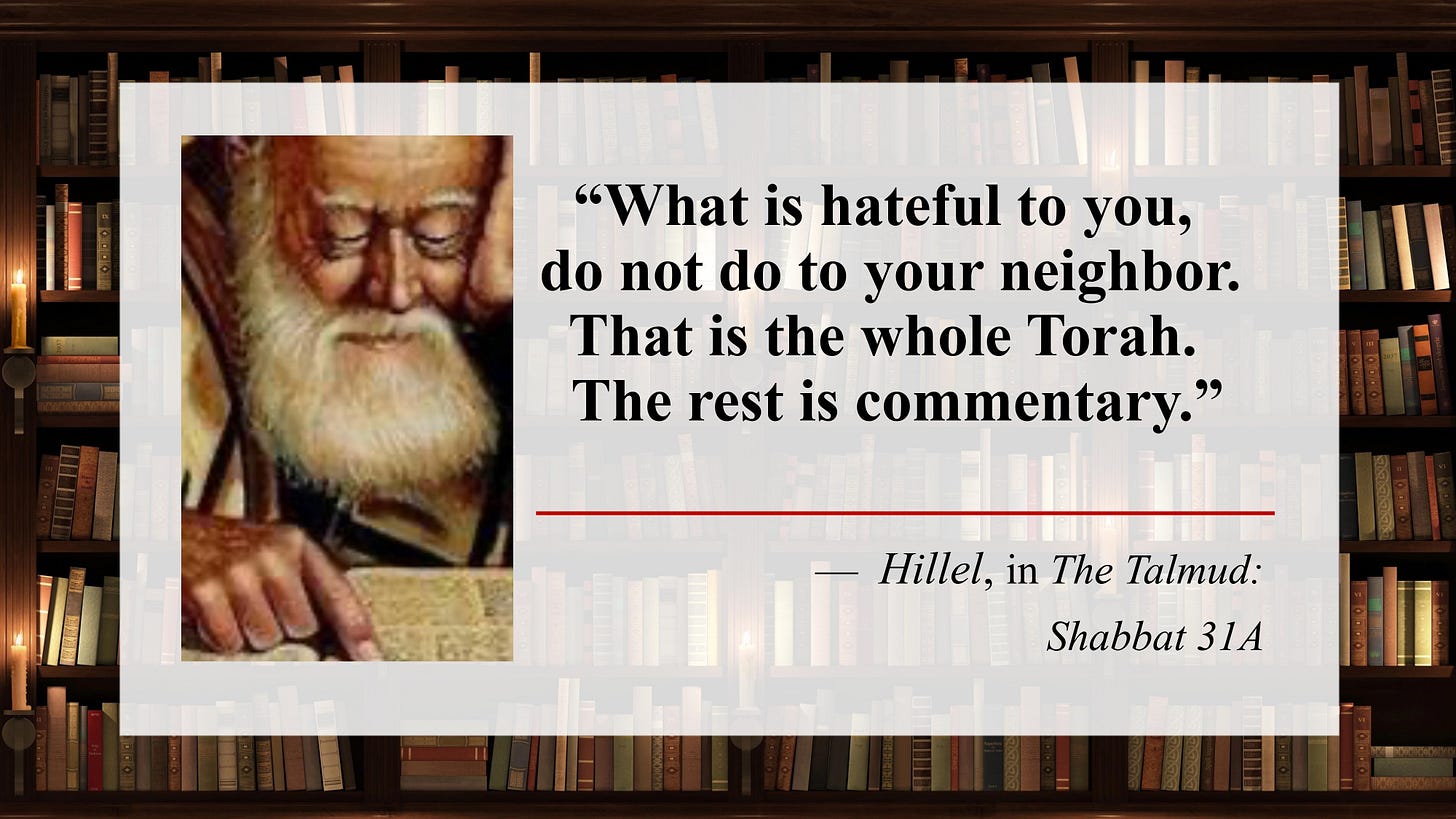
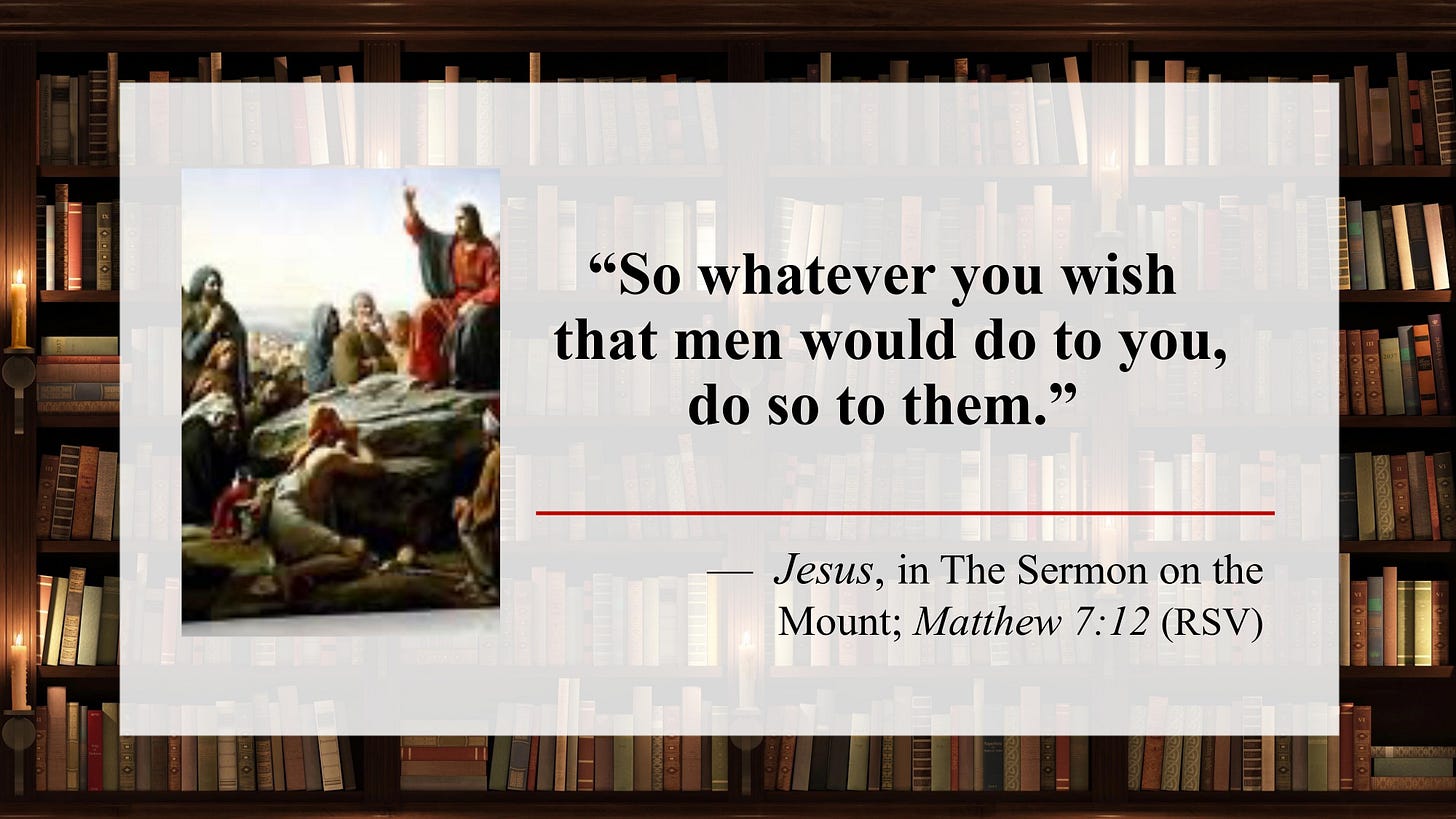
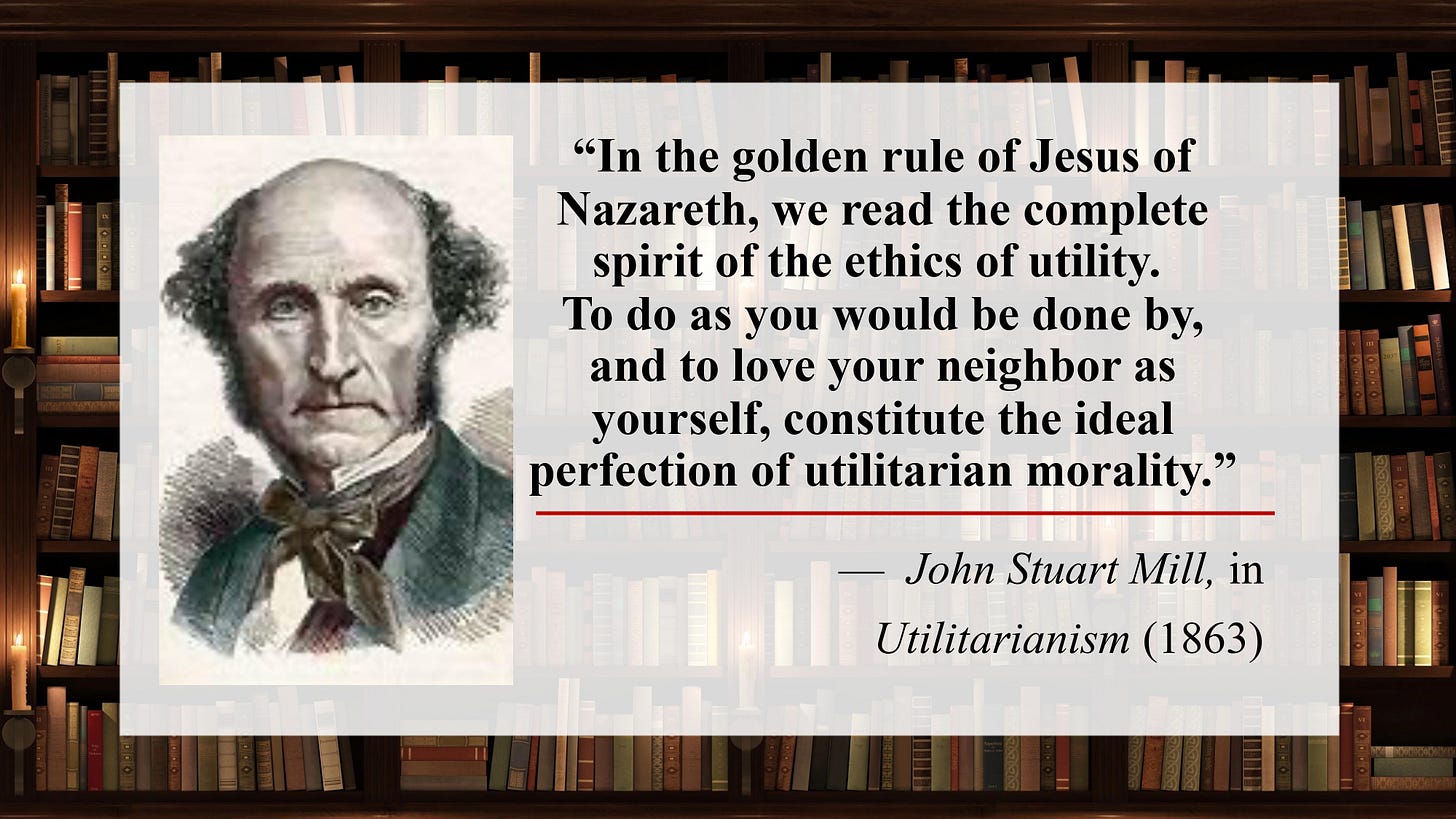
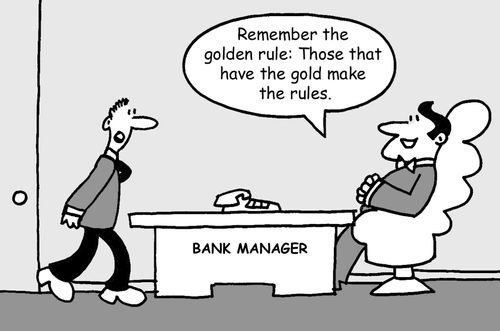

I like your term "altered aphorisms", and I just used one yesterday. I'm writing a book on innovation in carmaking and I was talking about how a startup sometimes has to "pivot" to a new product when their planned product doesn't catch on. They change direction and change their company.
YouTube is a good example, as it started out as a dating site. The idea was that users would upload videos talking about themselves and what they were looking for in a partner. The company was even started on Valentine's Day in 2005. The dating site flopped, but YouTube's video upload and streaming technology worked well so they pivoted to let any videos be uploaded and were a big hit.
Changing your company's product is drastic surgery, almost like an amputation, and a pivot should not be done lightly. Once, maybe twice in unusual cases, but never three times. An altered aphorism came to mind that perfectly captured what I wanted to say:
"If at first you don't succeed, try, try again. Then quit. No use being a damn fool about it."
The origin of this version of these words is unknown, although it is often falsely attributed to W.C. Fields. The Quote Investigator calls it a "twisted proverb" but I like your "altered aphorism" better.
Here's a two-fer for you. A great beginning book on economics for college students is called The Armchair Economist by Steven Landsburg. Here are its opening lines:
"Most of economics can be summarized in four words: 'People respond to incentives.' The rest is commentary."
To me those are good opening lines as incentives are the key to understanding our economic behavior. Steven Landsburg's words reflect similar thoughts by Charlie Munger, famed lawyer and investor who was a friend and colleague of Warren Buffett, and who died at 99 last year. He had a lot to say about the importance of incentives:
"Show me the incentives, and I’ll show you the outcome."
"If you have a dumb incentive system, you get dumb outcomes."
"I think I’ve been in the top 5% of my age cohort all my life in understanding the power of incentives, and all my life I’ve underestimated it. Never a year passes that I don’t get some surprise that pushes my limit a little farther."
And apart from them being good opening lines, Steven Landsburg's words are also an altered aphorism of a sort. They are based on the Hillel the Elder quote on the golden rule in your newsletter, repeating his final four words: "The rest is commentary."
A two-fer -- good (though perhaps not great) opening lines and an altered aphorism (of a sort) -- seen in the wild. It's fun for me to spot them, though I can't match your professional eye.